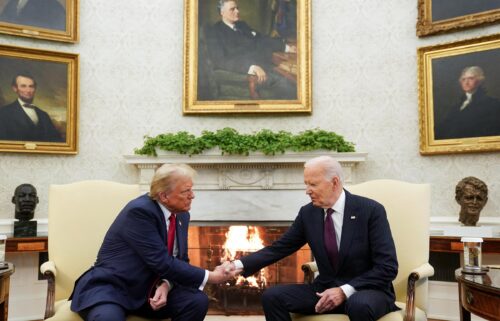Sen. Joe Manchin won’t support sweeping voting rights package, instead pushes for bill with narrower scope
Sen. Joe Manchin will not back the sweeping elections and campaign finance overhaul sought by Democrats to blunt Republican state-level efforts to restrict voting access, a spokeswoman for the West Virginia Democrat confirmed Wednesday. He suggested instead pushing legislation that would have a narrower scope as the path forward.
The major voting rights package, called the For the People Act, would mandate 15 days of early voting, allow same-day voter registration and limit states’ ability to curb mail-in voting and the use of ballot boxes. It also rewrites federal campaign finance rules, sets out new ethics requirements for the president and seeks to end partisan gerrymandering.
But Manchin had previously expressed reservations about moving forward with a far-reaching measure without bipartisan support.
His suggestion for legislation that can move forward — the John Lewis Voting Rights Act — is a bill far less sweeping. But it would bring back major pieces of the 1965 Voting Rights Act, including a provision that require states to consult with the federal government before making major changes to their voting rules.
Manchin’s support of that bill was first reported by ABC News.
The senator’s proposal comes just one day after the Senate Rules Committee deadlocked 9-9 along partisan lines on passing the For the People Act out of committee revealing the tough path ahead for the Democratic legislation.
It also comes ahead of a Democratic-wide conference meeting on the For the People Act scheduled for Thursday.
While Senate Majority Leader Chuck Schumer could still bring the bill to the floor, the vote in committee was a reminder that the legislation will not have the 60 votes needed to pass and has no Republican support. In recent weeks, Manchin has had conversations with Democratic colleagues Rep. Jim Clyburn and Sen. Raphael Warnock, both of whom have fought to pass the For the People’s Act.
On Tuesday, Republicans, led by Senate Minority Leader Mitch McConnell, repeatedly took aim at the 800-plus-page legislation with a raft of amendments that forced Democrats to cast a series of controversial votes.




